How Does Oilfield Equipment Stay Functioning?
Oilfield equipment has it rough.
Rigs, pipelines, various types of machinery – essentially any type of equipment used in the day-by-day functioning of oil and gas job sites – are constantly exposed to the harsh elements of our beautiful yet volatile northern climate.
So how does oilfield equipment stay functioning whilst being bombarded by both freezing winters accompanied by snow, ice, hail, or rain, and unbearably dry, hot summers?
One word: maintenance.
Maintenance Is Key
When it comes to the maintenance of oilfield equipment, there are 3 important stages to consider.
The 3 P’s
Predictive
The first type of maintenance, predictive maintenance, is essentially the testing of the equipment on a regular basis. By testing the equipment regularly, you are able to keep track of the condition of the parts. This makes it easier to “predict” when the parts will require additional maintenance.
Preventative
Preventative maintenance is, surprise surprise, intended to prevent problems before they happen. Typically this is the most common type of maintenance, consisting of the routine cleanings, changes, etc., that are needed in order to keep everything running smoothly.
Proactive
Both predictive and preventative maintenance fall under the category of proactive maintenance.
When the two are combined into a strategy intended to maintain the reliability of your equipment, it is seen as taking a proactive approach, as opposed to a reactive approach. Acting proactively versus reactively will not only save you money but also helps to maintain a safer and more efficiently operating workplace.
Oilfield Products That Can Help
There are a variety of products that are designed to help with both the predictive and preventative maintenance of oilfield equipment.
Pigs
A great example of a predictive maintenance product is an oilfield pig. Pigs are devices that are sent through pipelines for a variety of purposes, but most importantly for cleaning and inspecting the pipeline.
It’s crucial to keep pipelines clean in order to prevent both general wear and tear as well as potentially bigger problems. Additionally, sending inspection pigs allows you to monitor the condition of the pipelines and predict when routine maintenance may be necessary, or if there are already problems that need to be dealt with.
Lubricants
Additionally, products such as lubricants and sealants are used as preventative measures. Keeping pipelines, valves, and various fittings properly lubricated can keep them running efficiently for longer.
In order to keep up with this type of maintenance, you will need not only the lubrication itself but also a variety of other products, such as industrial grease guns used for lubrication.
Production is the Payoff
Not only does regular maintenance keep oilfield equipment functioning, but it will also keep it functioning as efficiently and effectively as possible.
Essentially, you will get out what you put in – the time, money, and effort put into maintaining the equipment will be visible in the equipment’s productivity.
